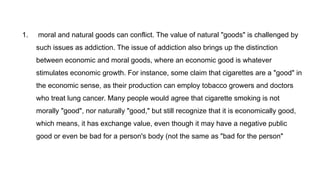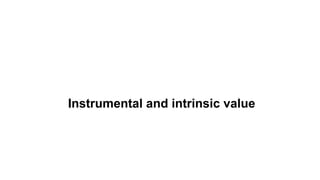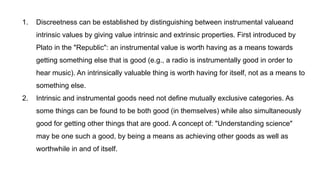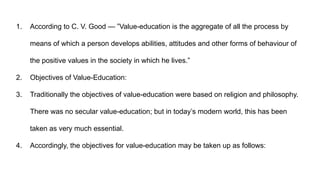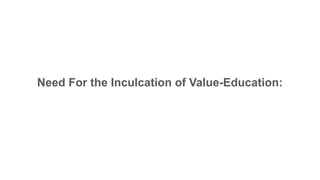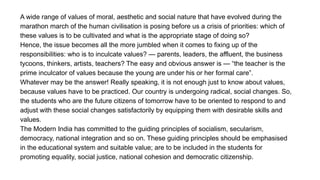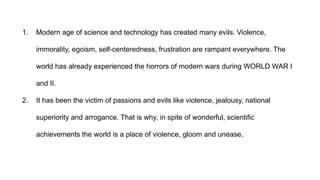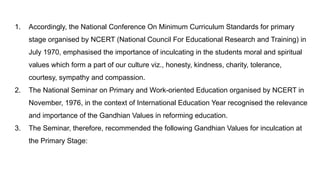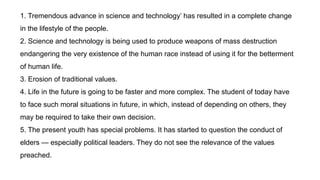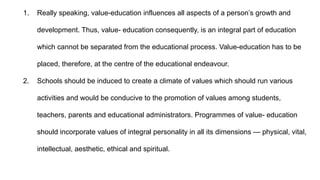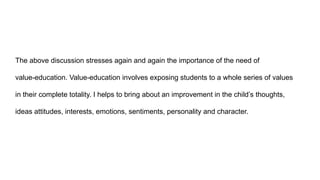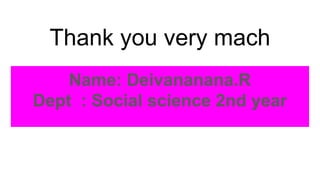1. Value theory examines how and why humans value various things such as people, ideas, and objects. It involves understanding concepts like good and evil.
2. There are different approaches to value theory across fields like philosophy, economics, sociology, and ecology. In ecology, values are separated into donor-type and receiver-type. Sociology examines how personal values held by communities can change under different conditions.
3. Effective value education is needed in modern times to inculcate desirable moral, social, and cultural values in students and address issues like violence, immorality, and erosion of traditions. It should be an integral part of the education system.
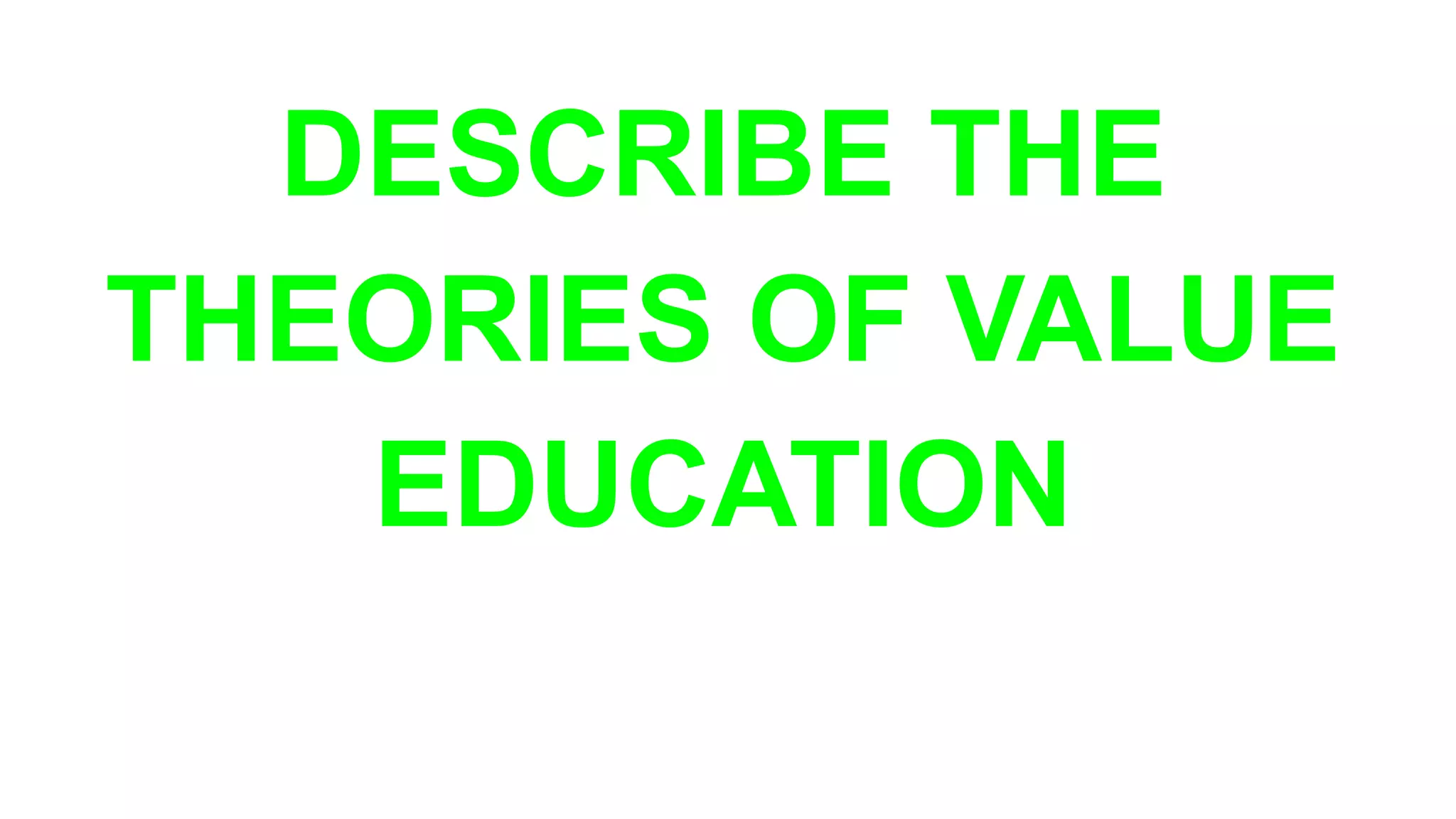
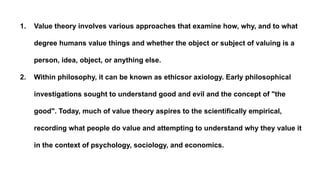
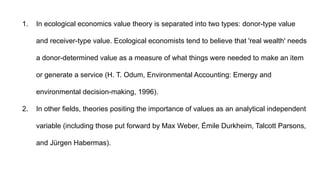
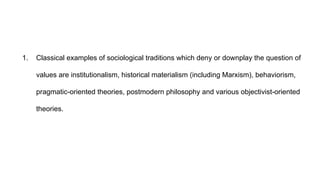
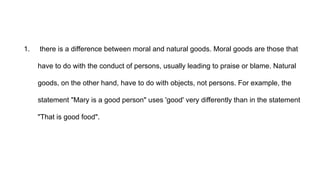
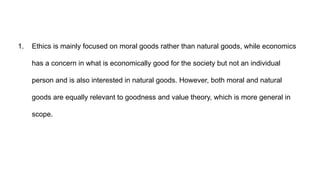
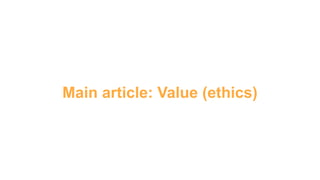
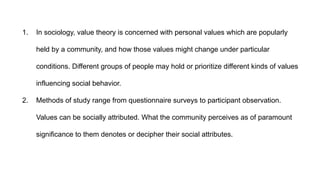
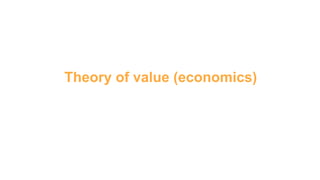
![1. Economic analysis emphasizes goods sought in a market and tends to use the
consumer's choices as evidence (revealed preference) that various products are of
economic value. In this view, religious or political struggle over what "goods" are
available in the marketplace is inevitable, and consensus on some core questions
about body and society and ecosystems affected by the transaction, are outside the
market's goods so long as they are unowned.[2]
2. However, some natural goods seem to also be moral goods. For example, those
things that are owned by a person may be said to be natural goods, but over which a
particular individual(s) may have moral claims. So it is necessary to make another
distinction: between moral and non-moral goods. A non-moral good is something that
is desirable for someone or other; despite the name to the contrary, it may include
moral goods. A moral good is anything which an actor is considered to be morally
obligated to strive toward](https://image.slidesharecdn.com/valueassignment-201218084158/85/Value-assignment-10-320.jpg)
